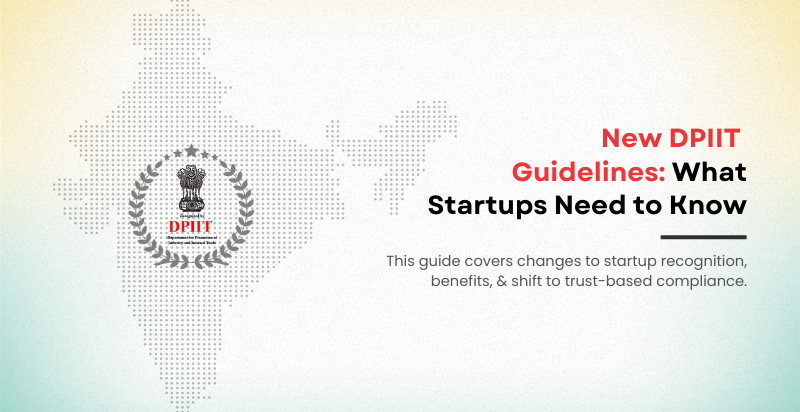New DPIIT Guidelines: India’s startup story enters a new, mature chapter. After years of blanket support, the Department for Promotion of Industry has introduced its most strategic framework. The DPIIT List 2025 is a pillar of the new Startup India policy. It intends a strategic shift from a nurturing ecosystem. The old ecosystem was not performance-grading.
The policy targets developing deep-tech, sustainable, and high-impact startups. It also simplifies the entire startup life cycle. The “Next Wave” strategy creates a resilient startup ecosystem. This ecosystem can compete globally. It aims to build foundation technologies and sustainable businesses beyond consumer tech.
New DPIIT Guidelines: Impact on Registration and Benefits
A tiered structure fundamentally changes incentives. Most startups were previously content with simple DPIIT recognition. Now, a clear financial reward exists for innovating in deep-tech areas. For instance, a fintech startup in the “Standard” tier gets a three-year tax holiday. A green-tech startup in the “Strategic” tier gets a ten-year tax relief. It also gets substantial R&D grants. This approach will likely channel capital and talent into key areas.
The automated SaaS portal also solves a long-standing pain point. Instant DPIIT recognition means startups unlock benefits faster. These include access to the Fund of Funds for Startups (FFS). The system also introduces a new “Digital Compliance Score” (DCS). This score rates a startup’s regulatory adherence. Investors and partners can now use it as a valuable metric.
More Startup Guides at Indian Startup Guides
Compliance Requirements
New rules have completely redesigned startup compliance in India. The DPIIT implemented a “Trust-Based Compliance” approach. Startups identified on the SaaS platform get light, non-obtrusive checks. Compliance is no longer a paper trail. Instead, it is a real-time data feed from a company’s systems. This includes HR and financial data. For example, a startup can self-certify labor and environmental law compliance. The system cross-checks this against payroll and operations data. It flags any anomalies.
This is a historic paradigm shift. It moves from a paper-intensive, enforcement-based system. It embraces a trust-based, data-based model. This reduces the regulatory burden significantly. It spares founders’ time and money. It also increases the onus on data integrity and transparency. The cost of “cooking the books” is high. The government made it clear that this model requires spotless digital records.
Expert Opinions and Founder Reactions
The new steps received optimism and skepticism. Experts praise the government’s vision. “This is not an update,” a leading venture capitalist said. “It’s a strategic reboot. By emphasizing deep-tech, the government future-proofs India’s economy. Automated compliance is a game-changer.”
Founder reactions have been largely positive. However, some grapple with the new tiered model. “Instant validation is a huge relief,” said an AI-tech CEO. “But there is pressure to be in a ‘strategic sector.’ It makes you think about your long-term impacts, not quarterly returns.” Another founder feared startups in critical but non-strategic areas would be left behind.
Actionable Checklist for Startups
To capitalize on the new design, here is a to-do list:
- Evaluate Your Industry: Determine if your startup belongs in a “Strategic” or “High-Impact” industry. This qualifies you for a range of benefits. You must explain how your business aligns with national priorities.
- Digitize and Automate: Transfer your financial and HR procedures to software. It must easily interface with the new SaaS portal. Clean, verifiable digital records are now your most valuable compliance asset.
- Apply for Instant Recognition: Use the latest SaaS portal for instant DPIIT status. Get your company incorporation documents and a brief business plan ready.
- Look for Tailored Schemes: Don’t settle for generic tax relief. Investigate new government schemes tailored to your industry. For example, look for green-tech grants or R&D-intensive project loans.
The DPIIT 2025 guidelines are a move toward a more intelligent startup ecosystem. India is laying the foundation for its next generation of entrepreneurs.


One Comment